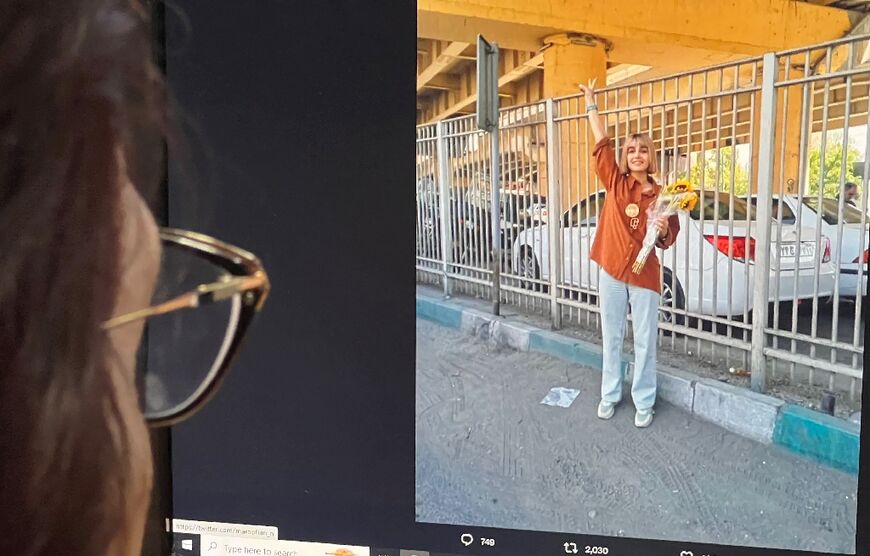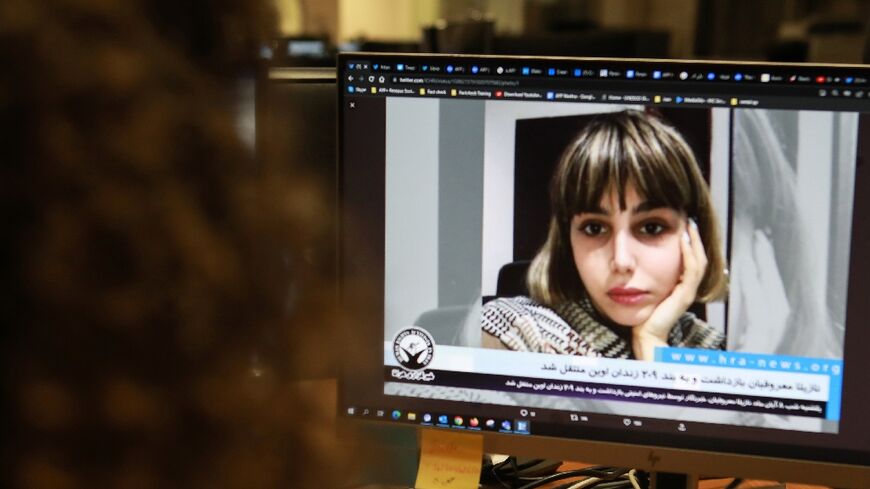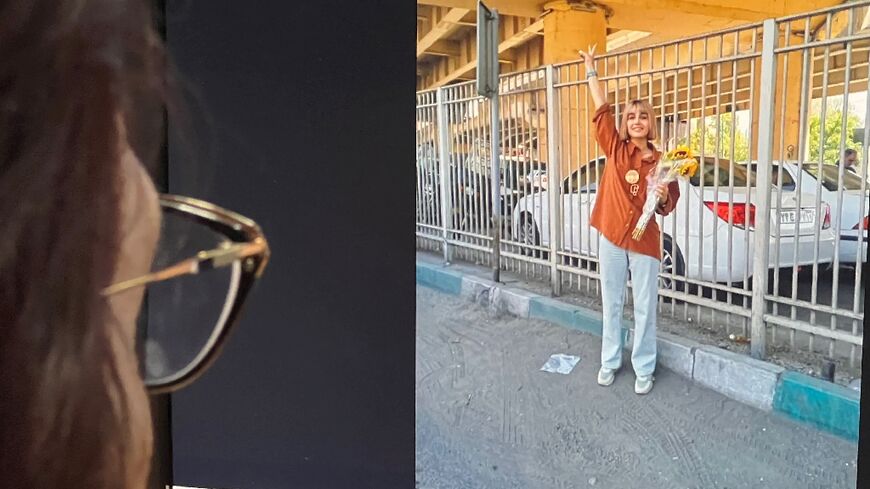The Iranian women paying price for reporting on Mahsa Amini

Iranian authorities have since the death of Mahsa Amini systematically persecuted the journalists, often young women, who helped expose the case and magnify its resonance in and outside Iran, campaign groups say.
Amini, 22, an Iranian of Kurdish origin, died on September 16, 2022 following her arrest in Tehran for allegedly flouting the Islamic republic's strict dress code for women.
Her death sparked months of protests in one of the biggest challenges for the Iranian authorities since the 1979 revolution.
Security forces responded with a crackdown that saw thousands arrested, including almost 80 journalists, according to a watchdog. Particularly targeted were those who reported on the circumstances of Amini's death.
Her family says she was killed by a blow while in custody, a version rejected by the Iranian authorities.
Almost a week after Amini died, Iranian authorities on September 22 arrested Niloufar Hamedi, 29, a journalist with the reformist Shargh daily who went to the hospital where Amini had been taken.
She posted on social media a photo of Amini's family grieving when her death was confirmed.
Hamedi's fellow reporter, Elahe Mohammadi, 36, of the Ham Mihan daily, rushed to Amini's hometown of Saqez in Kurdish-populated western Iran to report on her funeral which turned into one of the first protests.
Mohammadi was in turn arrested on September 29.
Both women have been held in detention ever since, for almost a year. They are now on trial on charges of violating national security, which they vehemently deny.
- 'Fearless reporting' -
"Niloufar Hamedi's courage and commitment must be rewarded, not punished," said Jonathan Dagher, head of the Middle East desk at Paris-based press freedom group Reporters Without Borders (RSF).
"Her imprisonment for almost a year illustrates the Islamic Republic's terrible repression of journalists, and their rejection of press freedom and reliable information."
In another blow for the Mohammadi family, her twin sister Elnaz, who also works for Ham Mihan and reported on the protests, was earlier this month given a three year partly suspended prison sentence for "conspiracy and collusion".
She and co-defendant Negin Bagheri will serve one-fortieth of the term, or less than a month, in prison, their lawyer told Ham Mihan. But they must undergo "ethics" training –- overseen by intelligence officials –- and are barred from leaving the country.
"By imprisoning Elahe Mohammadi for the past 11 months and punishing Elnaz Mohammadi, the Iranian government shows that it is determined to silence these two sister journalists and the women whose views they report," said Dagher.
In recognition of their work the Clooney Foundation for Justice (CFJ) –- founded by the human rights lawyer Amal Clooney and actor George Clooney –- awarded them at this year's Albies awards.
The two journalists won the Justice for Women Award in recognition of "their fearless reporting that brought the death of Mahsa Amini... out of the shadows," the CFJ said.
- 'Don't accept slavery' -
Weeks after the arrest of Hamedi and Mohammadi, the journalist Nazila Maroufian, now 23, published an interview on the Mostaghel Online news site with Amjad Amini, Mahsa Amini's father. He accused authorities of lying about the circumstances of his daughter's death.
Maroufian has since been arrested a total of four times, according to rights groups.
On her release she repeatedly posted a picture of herself without the Islamic headscarf in defiance of Iran's strict rules for women.
"Don't accept slavery, you deserve the best!" she wrote in one post after walking out of prison, holding flowers in one arm and the other raised skyward in a victory sign.
During her latest stint in jail this month, Maroufian said in an audio message that she was sexually assaulted while being arrested and had begun a hunger strike to protest her situation.
She was freed at the weekend. This time, Maroufian opted not to post a picture on social media celebrating her release, implying she would be arrested again if she failed to wear a headscarf.
"I am forbidden to post my photo after 'freedom'. I preferred not to post a picture rather than posting a picture of myself... which is nothing like Nazila."
According to the RSF watchdog group, 79 journalists including 31 women were arrested in the crackdown. Twelve are still behind bars, RSF said.
Dagher said this "labyrinth of repression" has been created so journalists either "self-censor or they get locked up".
"But if the arrests are continuing, it is because there are still journalists who defy this formula."






